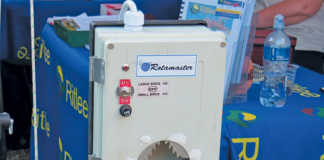
You need to look for three things in a person, says 88-year- old Warren Buffet, one of the world’s most successful entrepreneurs: intelligence, energy and integrity.
“If they don’t have the last one, don’t even bother with the first two,” he adds.
‘Intelligence’ and ‘energy’ are self-evident, but ‘integrity’ means different things to different people. I had a sobering experience once, which brought home to me how difficult it is to share a common understanding of integrity in a complex society such as ours.
An accessory to the crime
An employee of ours had stolen irrigation equipment from us, and was dismissed. During the investigation, it came to light that a fellow employee had witnessed the theft, but had made no effort to report it. He, too, came up for disciplinary action.
The union representative defending him was a valued and respected employee of many years. But he simply could not see the guilt of the defendant! He argued that the employee concerned had not stolen anything. We had dismissed the thief; as far as the union representative was concerned, the matter was over.
Our disciplinary code was clear, though. Employees were expected to take care of and protect company equipment. We employed the man to help us run the farm; he saw someone stealing our equipment; he did nothing about it; it was wrong. He was guilty and needed to be disciplined.
“No,” said the union rep. “He didn’t steal the stuff. He was a tractor driver, not a member of the security staff, why should he be punished?”
All our arguments about being an accessory to the theft by not reporting it fell on deaf ears. Our views of right and wrong were poles apart, and here lies one of the great difficulties in our society, and others.
Ethics and integrity mean different things to different sectors of society. This is a ‘weakness in diversity’ rather than a strength, and leads to conflict and confusion, not only in the workplace, but far more broadly.
The essence of integrity
Let’s briefly recap on what are generally held to be the core qualities and behaviour that constitute ‘integrity’.
The word is derived from the Latin integritas, meaning ’wholeness’ or ‘completeness’. Words such as ‘honour’, ‘morality’, ‘sincerity’, ‘honesty’, ‘reliability’, ‘trust’, ‘his word is his bond’, ‘character’ and ‘ethical’ are all used to describe integrity.
It’s a cluster concept linking different overlapping qualities together into one word. People with integrity do the right thing at all times, whether anyone is watching or not. Having declared a principle or value, they stick to it regardless.
They do what they say, even if it means they stand to lose in the process. Leaders with integrity walk the talk, set the right example, serve as a role model, and perform actions that speak louder than words.
Integrity is all of these things and more. But in the end it leads to that most important of all leadership qualities: trustworthiness.
The lack of a common national understanding of ‘integrity’ is nowhere better demonstrated than by the fact that the ANC still has so much support in the country. The organisation and most of its leaders have a disgraceful lack of integrity, but, unlike chickens, it’s taking a long time coming home to roost. But the process has started.
As Abraham Lincoln famously said: “You can fool all the people some of the time, and some of the people all the time, but you cannot fool all the people all the time.”
The elections, in the meantime, have come and gone. Now let’s see whether there is any improvement in integrity under the ANC’s new leadership.
But whatever happens in politics, never, ever compromise your own integrity. It’s the most precious possession you have. Protect it with all your might.











